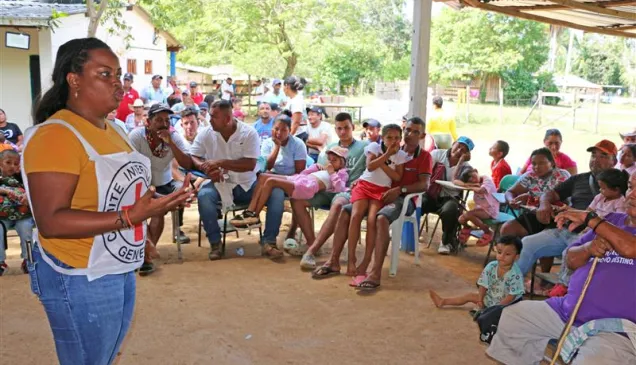Colombia: Humanitarian Report 2024
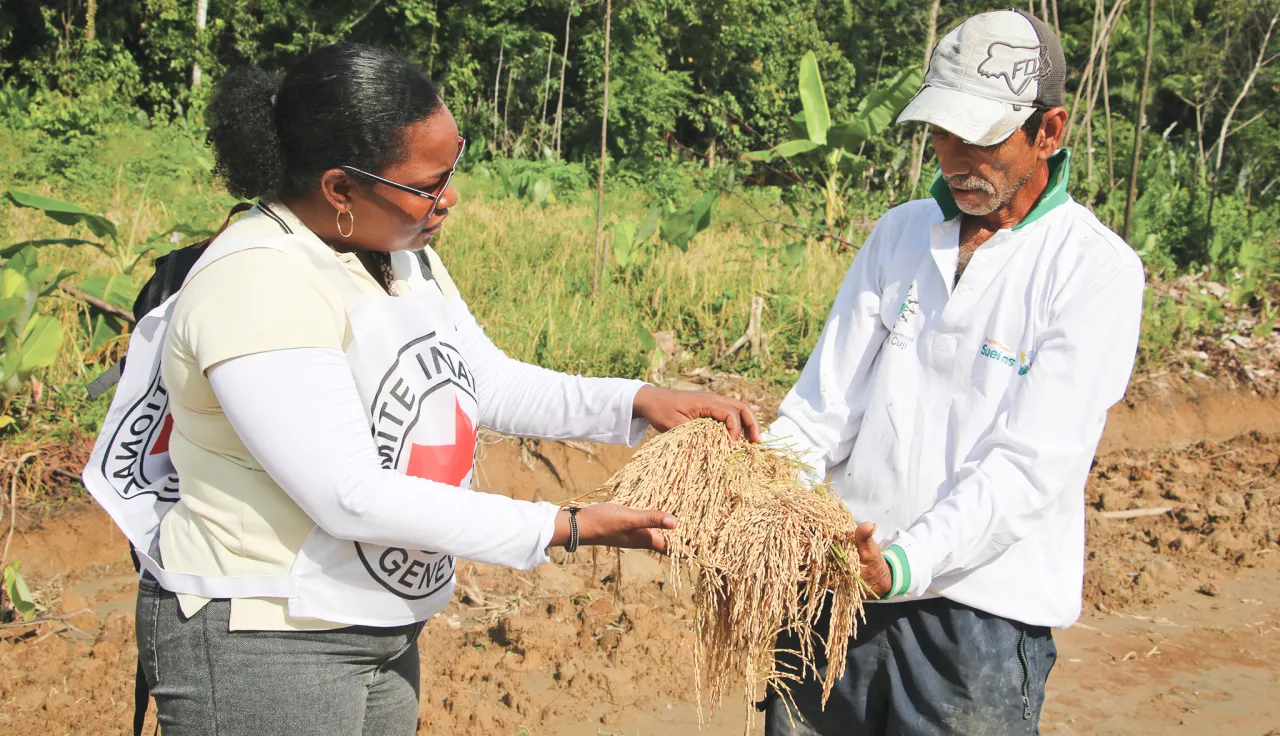
The civilian population continues to bear the brunt of the war. We wish that the figures we report here for humanitarian consequences belonged to the distant past. However, these figures reflect the daily life of thousands of families, particularly peasants, indige- nous people and afro colombian people.
Throughout 2023, we supported communities who had been displaced and who, scared for their lives, took the only way out they had: leaving their homes and losing everything. We also provided support to people who were determined to start or continue the search for their relatives reported missing. We helped those who, in the midst of uncertainty, were confined to their communities with limited access to basic resources.
There were no significant improvements to the humanitarian situation that communities face in the regions where we worked. Throughout the year, our field teams documented 444 alleged violations of IHL and other humanitarian norms by state and non-state armed groups. These violations included threats; sexual violence; recruitment, use and direct participation of children and adolescents in hostilities; homicides; use of explosive devices with indiscriminate effects; cruel, inhumane or degrading treatment; and arbitrary deprivation of liberty, among other violations.
Wars have limits that must be respected

Lorenzo Caraffi
Head of Delegation, Colombia
Given the multiple armed conflicts around the world today, public debate about the rules governing wars is more relevant than ever. What are the limits to wars? What can be done to prevent human suffering? Are all and any actions valid when attempting to defeat an enemy?
Real-time reporting on bombing and people having to flee their homes has led many to believe that armed conflicts are so cruel that they break the very rules of what makes us human. But this is not true. International humanitarian law (IHL), also known as the "law of war", is aimed at reducing the suffering caused by armed conflicts.
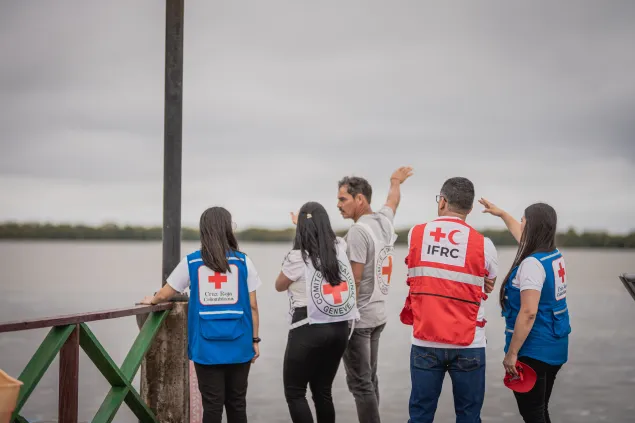
In 2023, our humanitarian work benefited close to 150,000 people in different areas of Colombia. These figures correspond to the permanent effort made by our teams in the field to help people affected by armed conflict and violence, often in a joint effort with the Colombian Red Cross.</h2>
The invisible consequences of explosive devices
In Colombia, the presence, use and abandonment of explosive devices in both rural and urban areas continues to leave an indelible mark on society. The cumulative consequences of these devices are varied and devastating, as they pose a long-term threat to communities. The presence or suspected presence of even a single device can confine an entire community for long periods or, at times, intermittently. This limits access to essential resources such as water sources, schooling and medical care.
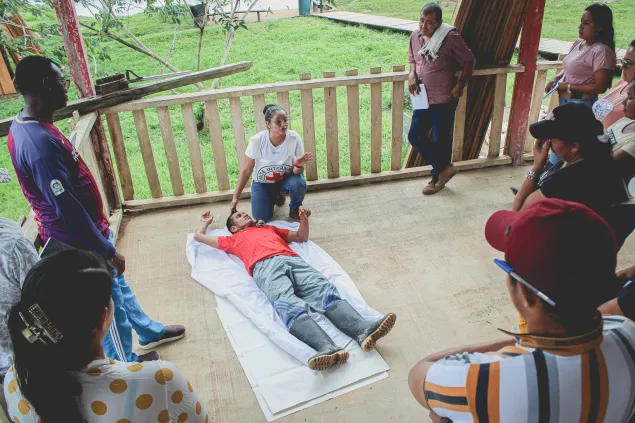
14.904 people living in areas affected by the presence of explosive devices learned how to mitigate the risk of accidents.
Lost in a maze: the footprints left behind
The experience of having a missing family member is unique and can only be truly understood by those who have experienced it. For more than 30 years, we have been hearing from thousands of people who have had to handle the disappearance of a family member.
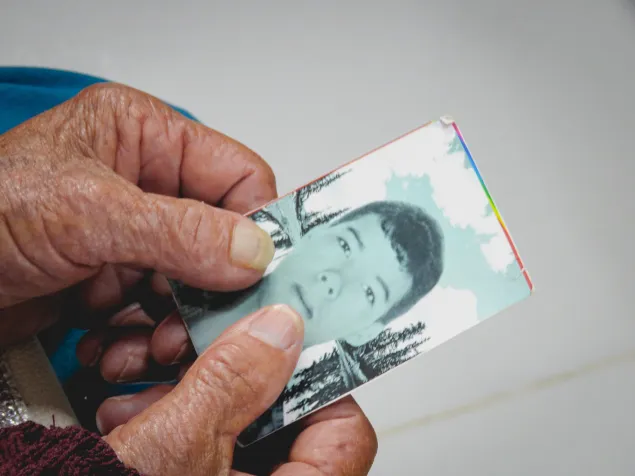
201 relatives of missing people obtained information on the whereabouts of their loved ones thanks to our support. Of these, 141 people were located alive.
Worrying increase in violence against health in Colombia
Violence in the context of armed conflict has profoundly affected the physical and mental health of communities, particularly those living in the most remote areas of the country. This violence manifests itself in the form of threats, physical aggressions, deaths, sexual violence and other forms of violence. Paradoxically, health-care personnel, whose mission is to heal and alleviate suffering, have become a particular target of violent acts.
READ Worrying increase in violence against health in Colombia
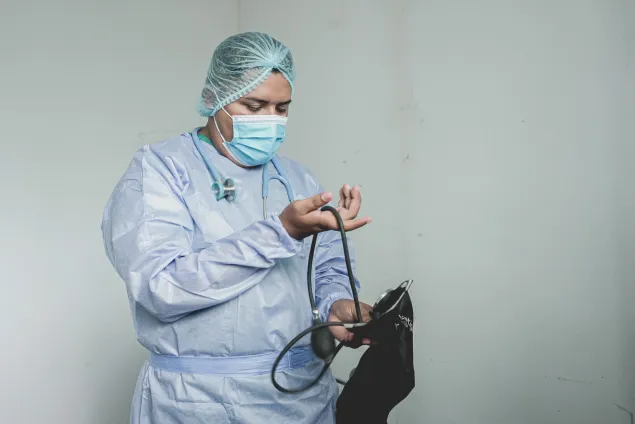
1.161 people who were injured, sick or had a disability and victims accessed physical and mental health services and physical rehabilitation.
Return to freedom: 44 years of neutral intermediation
Between 1980 – when we secured the first release of a person deprived of their liberty by an armed actor in Colombia – and 2023, we have facilitated 1,960 releases, always with the goal of returning people to their family homes.
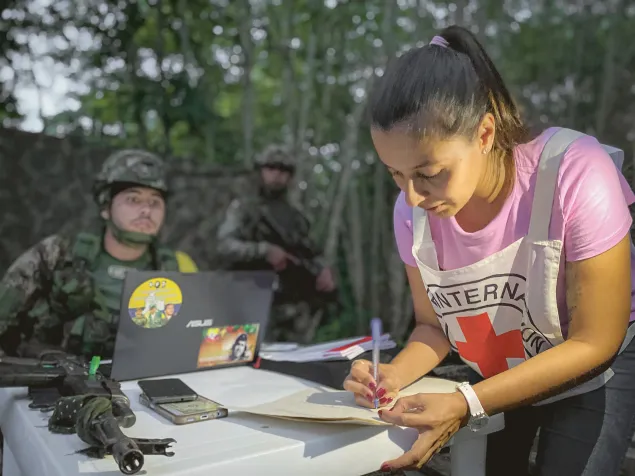
66 people held by armed actors were released in humanitarian operations facilitated by the ICRC.
Rights do not end behind bars
The issue of overcrowding in national detention facilities continued to increase during 2023 and reached 24.5 per cent at the end of the year. This means that the prison population exceeds capacity by nearly 20,000 people, which has a negative impact on access to basic resources, as well as judicial rights and guarantees.
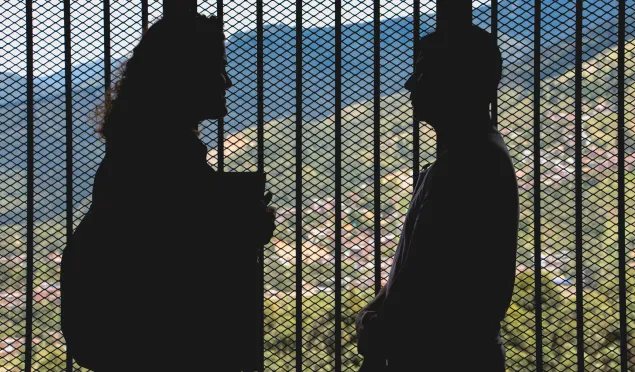
34.400 people deprived of their liberty benefited from 43 visits we made to 16 prisons.
Communities tell their stories
In this section you will find some of the stories we documented during 2022 in Colombia. Each testimony corresponds to a specific action that we developed, hand in hand with the communities, in the four sub-delegations where we are present.
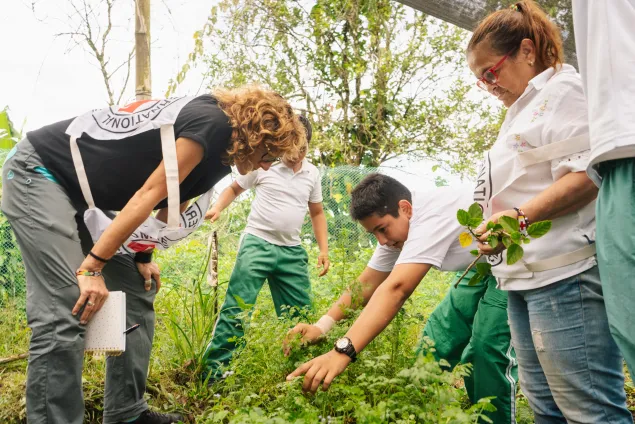
27.105 people affected by armed conflict had improved economic security after receiving food and support for productive and income-generating activities.
Calls to action for Colombia in 2024
The reality of Colombians living in the midst of armed conflict and violence continues to be complex. Therefore, through these recommendations we want to send a message to state authorities, armed actors and civil society.
Media contact
Lorena Hoyos, ICRC, Bogotá
Public Relations Officer
Phone: +57 310 221 81 33
Email: bhoyosgomez@icrc.org
Media contact
Laura Santamaría, ICRC, Bogotá
Communication Coordinator
Phone: +57 311 491 07 89
Email: lsantamariabuitrago@icrc.org



